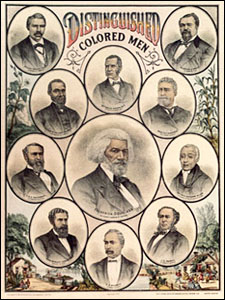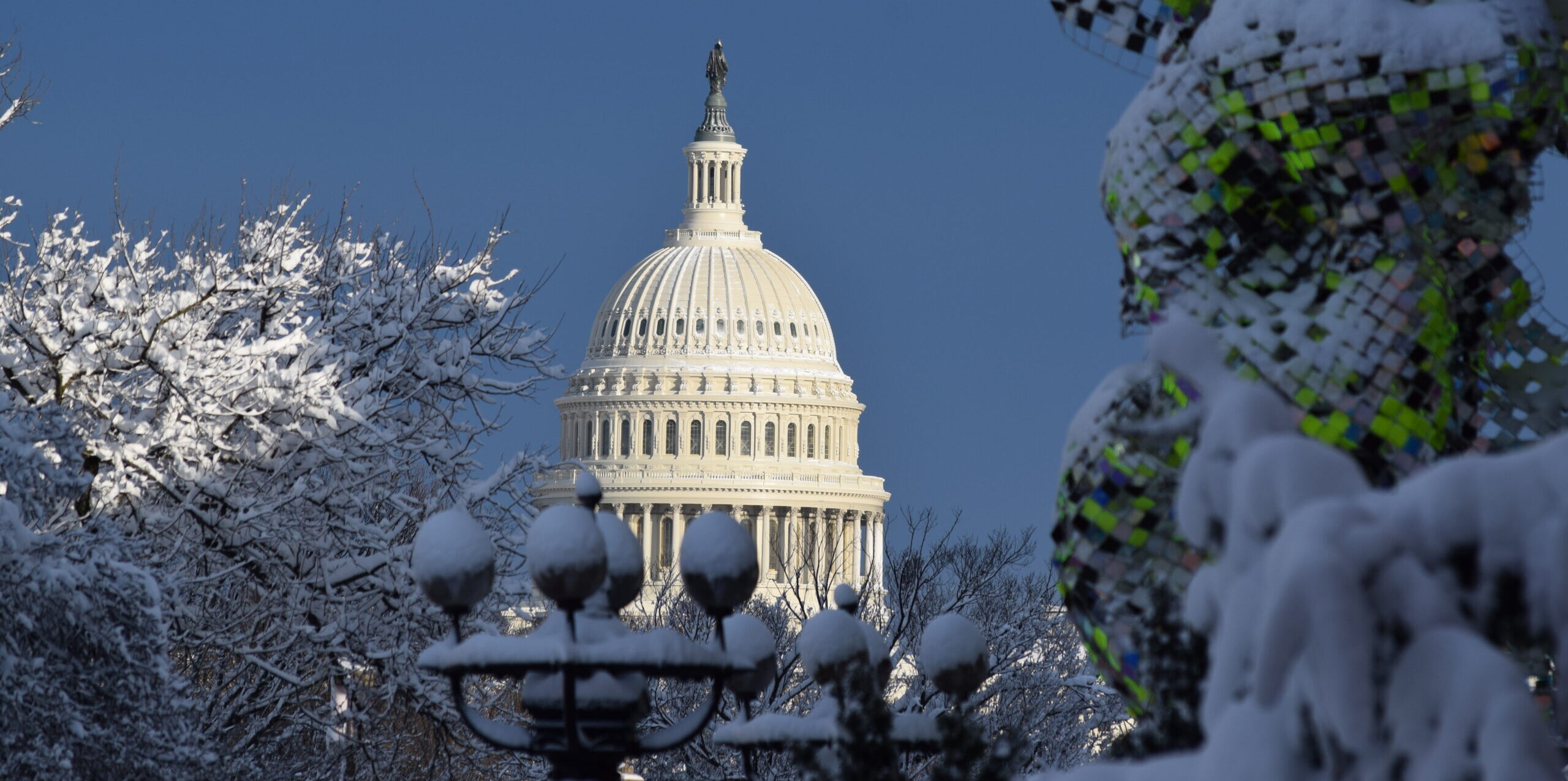By Sarah C. Scott, USCHS Intern
The Capitol Hill newspaper, Roll Call, recently ran an article comparing the 57th Congress, the first Congress of the twentieth century, with the last of this century, the recently seated 106th Congress. Roll Call noted that one of the most striking contrasts between these two bodies is the inclusion of African Americans in the 106th Congress. From the end of the Civil War to the beginning of the twentieth century, only twenty-two African Americans were elected to Congress. After Republican George Henry White of North Carolina left the House of Representatives in 1901, no African American was elected to Congress until Oscar De Priest (R-IL) in 1928. Of the four hundred and thirty-five House members in the current Congress, there are thirty-eight African American members. Beyond a few short articles and an even smaller number of books written on this subject, the history of these men and women has been woefully neglected by historians.
In Outstanding African Americans of Congress, author Dr. Shirley Washington highlights fifteen notable African Americans who have served in Congress, including Shirley Chisholm, Mickey Leland and Adam Clayton Powell, Jr. The subjects were chosen by polling a distinguished advisory board of scholars and current and former Members of Congress. Beginning this chronicle with the post-Civil War election of the first African American Member, Dr. Washington notes that until the twentieth century, African American Congressmen had a number of characteristics in common: “almost all were born and raised in slavery in the Southern states that made up the Confederacy; they were committed to ending slavery even if it meant taking up arms; they were brave men with strong family values, dedicated to educating themselves, their children and other slaves; and they were inherently sympathetic to the North and to the Republican Party of Abraham Lincoln.”

Early African American Members of Congress also had a difficult time holding office. Some states employed tactics to discredit African American officeholders, discourage office seekers and disfranchise African American voters. In the late 1890’s and early 1900’s, a series of “black codes” effectively disenfranchised African Americans in the South. The codes were supplemented by so-called “Jim Crow” laws limiting their freedom to own or lease property and to move about as they pleased. Even some Northern states employed practices to deny voting rights to blacks. It was not until the 1920s, when large numbers of African Americans migrated to Northern cities, that this group had a foundation for political organization. This centralization of power as a voting bloc in Northern cities led to an increase in black representation in the federal government.
Referring to the segregated restaurants, hotels, and public transportation in Washington, D.C. in the 1930s, one former Congressman said that holding federal office did not mean exemption from Jim Crow laws. Several decades later, the Civil Rights Movement and the enforcement of the Voting Rights Act of 1965 served as catalysts for the election of African Americans to Congress. The end of legalized segregation allowed African Americans to increase their numbers in Congress.
It also was during this time that African American Members of Congress established an organization to represent and enhance the combined interest of African Americans. They founded the Congressional Black Caucus (CBC) in 1971 to eliminate the lingering barriers to equal justice and equal opportunity. The CBC’s motto: “Black people have no permanent friends, no permanent enemies, just permanent interests,” signifies the unity of purpose that underlies its political influence. These interests include special concern for the protection of civil rights and the guarantee of equal opportunity in education, employment and housing. Members of CBC include the well-known civil rights activist Congressman John Lewis (D-GA) and Jesse Jackson, Jr. (D-IL), the son of the famous minister and politician. One of the most influential of the current African American members of Congress is the newly appointed Republican Congress Chairman, J.C. Watts, Jr., of Oklahoma. The only African American Republican in Congress, Watts was first elected to the U.S. House of Representatives in November 1994. Though he is best known as the star quarterback for the University of Oklahoma, Watts has now made his name known on the Hill through his leadership on issues such as the Community Renewal Project.
Though political participation for African Americans was delayed, significant progress has been made this century. Dr. Washington’s Outstanding African American Members of Congress further explores this history. The biographies of these men and women tell remarkable stories of their strength and will to extend the promises of the Founding Fathers to every citizen of the United States.
Originally Published: 2000
Further Reading:
William L. Clay, Just Permanent Interests: Black Americans in Congress, 1870-1991, (1992).
Congressional Black Caucus Web Site
Bruce A. Ragsdale, Black Americans in Congress, 1870 – 1989, (1990).
Mark R. Salser, editor, Black Americans in Congress, (1991).








